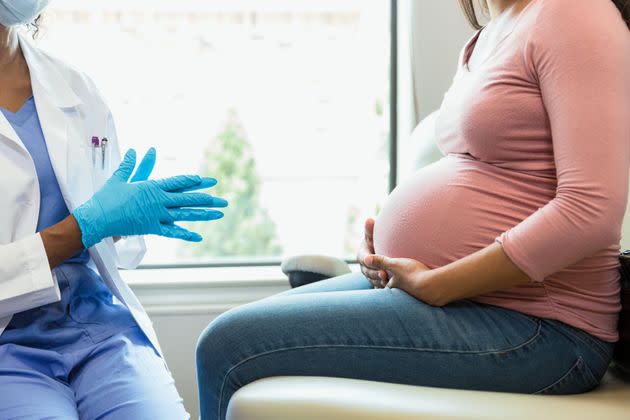New Studies Offer Reassurance On COVID Vaccines And Fertility

From the moment COVID vaccines became available, misinformation began swirling about their potential effect on fertility.
But two new studies, including one of the largest on the topic to date, add to an ever-growing body of research showing that the COVID-19 vaccines do not hurt fertility — though getting COVID might.
Doctors hope the new research will reassure vaccine-hesitant patients who are trying to conceive or are expecting a baby. As of early January, only about 40% of pregnant people had been vaccinated against COVID-19.
“There’s a lot of misinformation out there about the vaccines and about pregnancy,” Jane Frederick, a reproductive endocrinologist based in California, told HuffPost. “But we should be encouraging all of our pregnant patients and people who are thinking about fertility treatments to all get vaccinated and protect themselves.”
A big addition to the COVID and fertility research
A large study published Tuesday in the journal Obstetrics & Gynecology is one of the biggest to date to explore outcomes among patients undergoing fertility treatments, which included more than 2,000 patients undergoing in vitro fertilization, or IVF. Researchers compared outcomes among patients who’d received either the Pfizer or Moderna vaccines with those who were unvaccinated.
They found no significant differences in those patients’ response to ovarian stimulation (when eggs are harvested), egg quality, embryo development or overall pregnancy outcomes.
“Our findings that vaccination had no impact on these outcomes should be reassuring to those who are trying to conceive or are in early pregnancy,” said study author Devora Aharon in a press release. Aharon is a fellow in reproductive endocrinology and infertility at Icahn Mount Sinai and Reproductive Medicine Associates of New York.
Her team’s study comes on the heels of another research paper published last week that looked at data from 2,100 couples in Canada and the United States for a year and concluded that COVID vaccines do not impair fertility in men or women.
For men, however, getting infected with the coronavirus might.
That study found that men who tested positive for COVID within 60 days of their partner’s menstrual cycle were 18% less likely to conceive during that cycle, suggesting that COVID infection itself might hurt sperm quality — at least in the short term.
“Any fever and active infection can temporarily decrease sperm count in men,” Lora Shahine, a reproductive endocrinologist and founder of the Center for Recurrent Pregnancy Loss at Pacific NW Fertility, told HuffPost. “We’ve seen this with measles, mumps, zika and now COVID.”
Talk to your doctor if you have any concerns
The low vaccination rate among pregnant people in the United States has raised alarms with public health officials and suggests that vaccine hesitancy continues to be a problem in this population.
Experts say that they hope new research will help assuage concerns people may have as they try to conceive and that it encourages anyone with lingering questions to talk to their doctor.
“If all the information you get is on Facebook and Instagram, you’re not getting the best information. Talk to your fertility doctor, your primary care doctor, everybody in our fields are on the same page about your health,” Frederick said.
Reproductive experts are hopeful more patients will come around. Shahine said that more of her patients have grown comfortable with the idea of getting vaccinated as more research has come out.
“I am seeing the vast majority of my fertility patients getting vaccinated and boosted as more reassuring data emerges,” she said.
If you or your partner had a breakthrough infection, don’t freak out
If you’ve been vaccinated and boosted and still experience a breakthrough infection, take heart. Though the new research does suggest that getting COVID could hamper male fertility in the near term, getting vaccinated helps provide significant protection to yourself and your baby, and can lower the likelihood of partners passing the virus to each other.
And being vaccinated helps protect people who are pregnant and who get infected from getting seriously sick. By contrast, those who are unvaccinated are at higher risk of severe illness, preterm birth and other pregnancy complications.
“We now know that vaccination is an important step for decreasing risk in pregnancy,” Shahine said.
This article originally appeared on HuffPost and has been updated.




